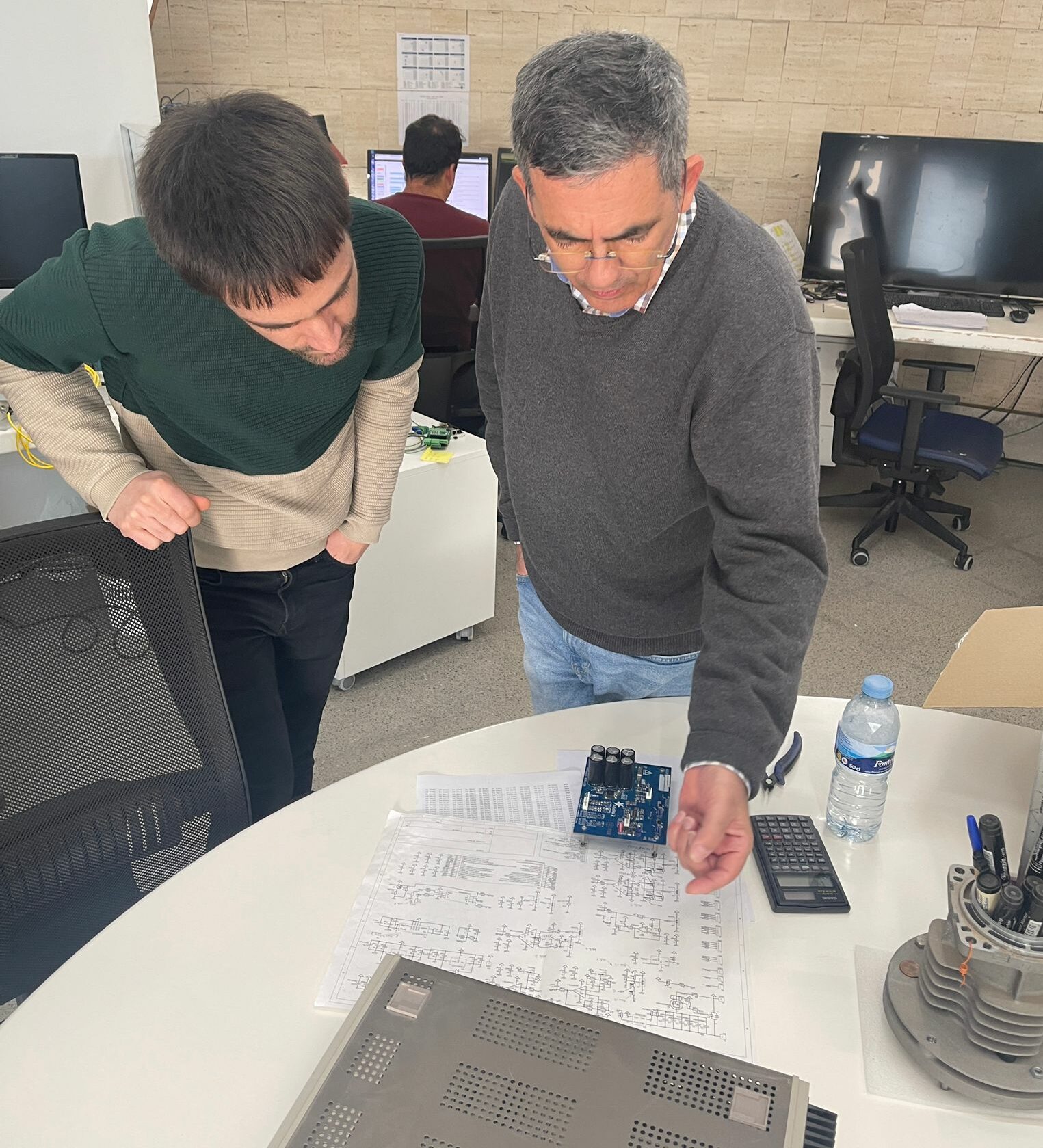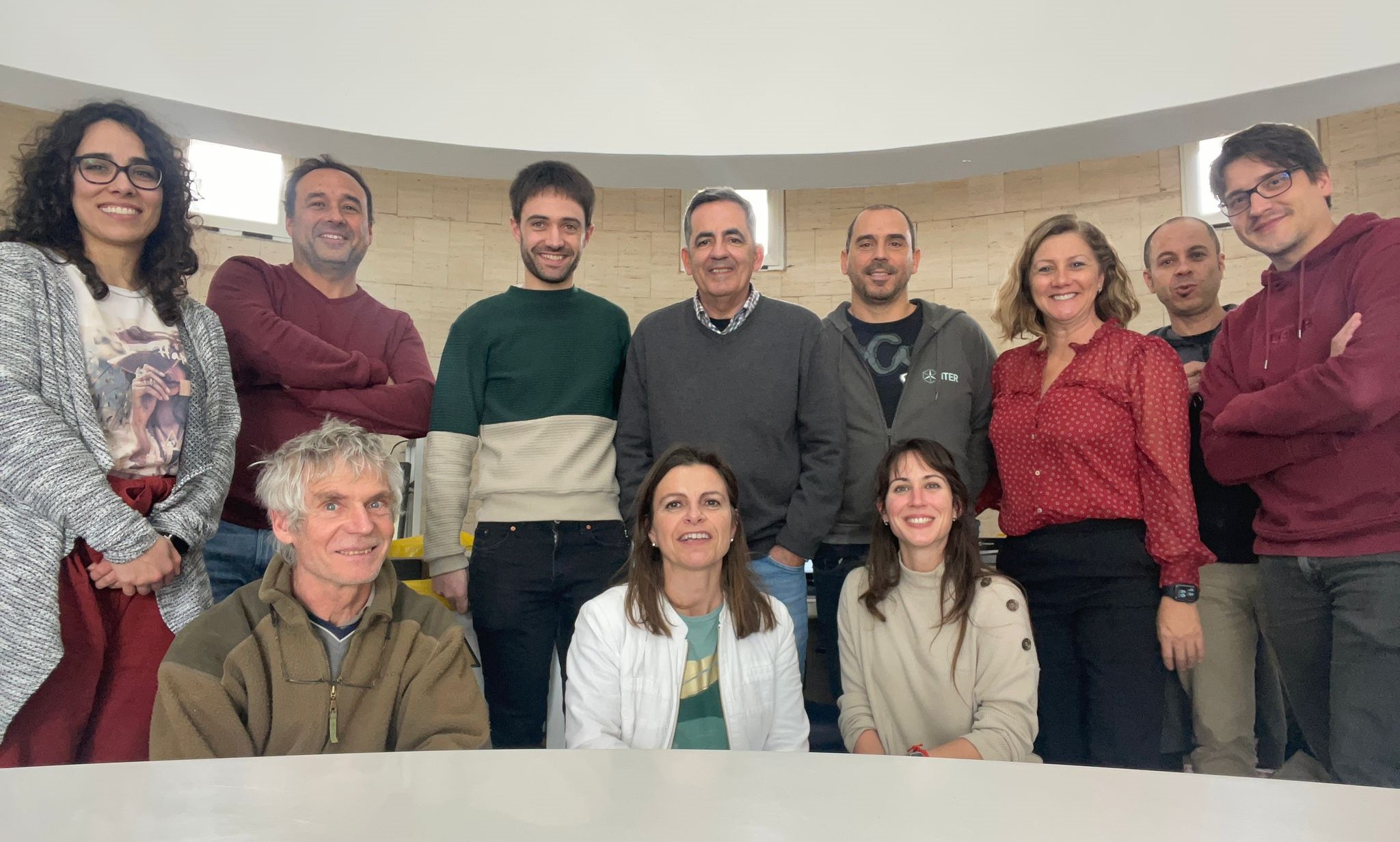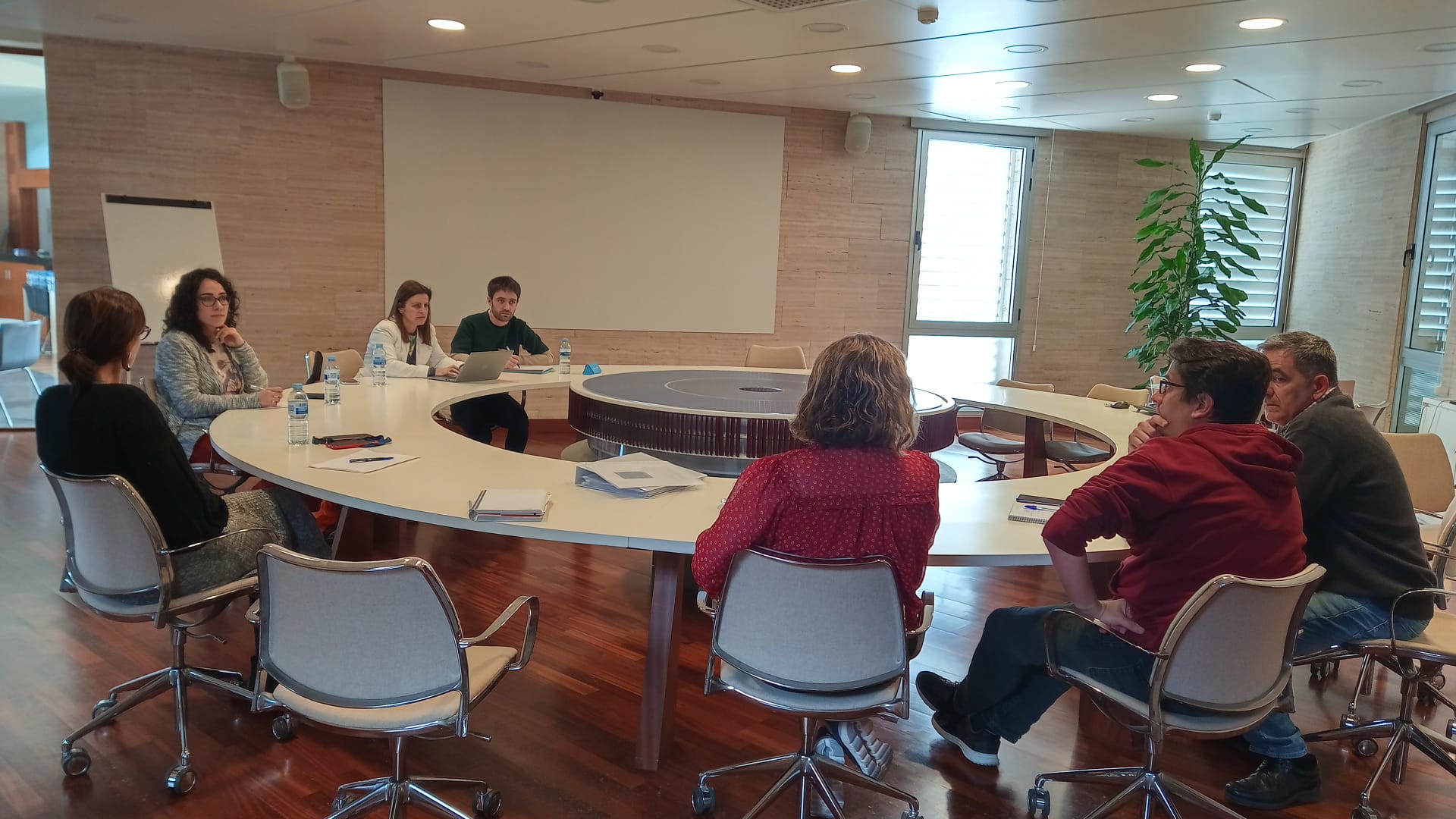Researchers from CENER and ITER meet to present the latest advances made within the framework of the aisovol2 project.
The Institute of Technology and Renewable Energies (ITER) has received this week the visit of three researchers from the National Center for Renewable Energies (CENER), on the occasion of the celebration of a follow-up meeting of the Aisovol2 project (Photovoltaic generation solution for use in building and distributed generation).
The partner meeting was used to update the results that have been obtained up to date in the development of an adaptable and multipurpose photovoltaic module, which allows its installation both adapted in the building and integrated into its own structure, increasing the architectural resources currently available and responding to the latest trends in the photovoltaic market.
To achieve this goal, the photovoltaic module to be developed makes use of the latest market advances in terms of materials, specially designed for photovoltaic applications, and incorporates the latest photovoltaic technology, such as high efficiency cells or bifacial cells.
The project is completed with a monitoring system developed by ITER for field installation, which will allow monitoring the operation of the photovoltaic modules installed both at the ITER facilities in Granadilla de Abona, and at the CENER headquarters in Sarriguren, Pamplona. This will allow the evaluation of how these devices behave in different environmental conditions.
The meeting addressed the current status of the project and planned the next actions. In addition, the CENER delegation was able to verify the latest advances made in the manufacture of prototypes and the monitoring system of photovoltaic modules in the field, during their visit to ITER´s Electronics Laboratory.

Exhibition of the monitoring system of modules in the field developed by ITER in the frame of AISOVOL2 project.
The AISOVOL2 project, which began in June 2020 and will end in December 2023, has a budget of 768,516.50 euros and is co-financed by the Ministry of Science and Innovation within the framework of the call Collaboration Challenges 2019 of the State Program of R + D + i Oriented to the Challenges of Society.
Más información en: proyecto AISOVOL2


